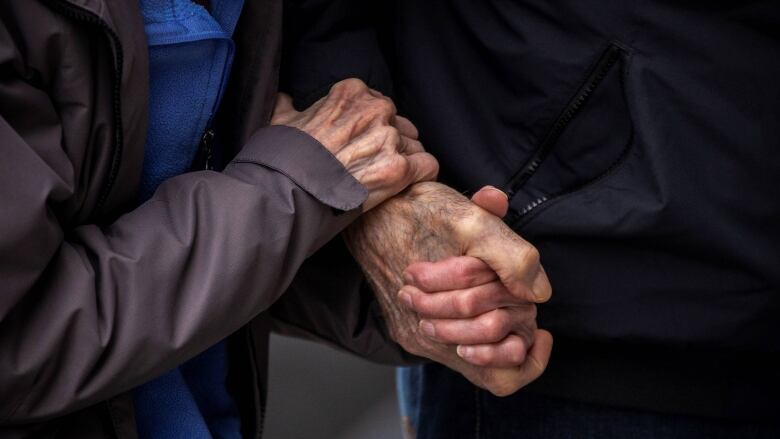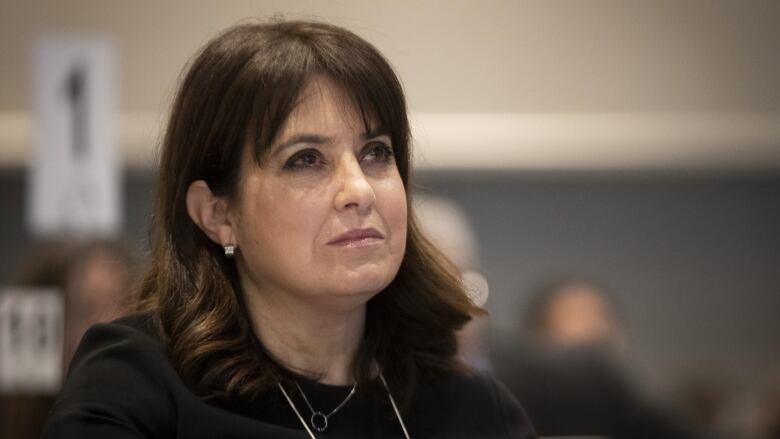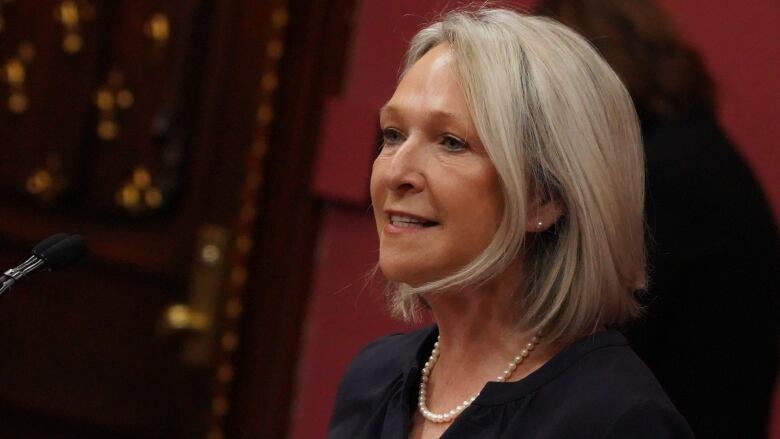Quebec's expansion of MAID not broad enough, groups say
Hearings are underway for bill tabled last month by CAQ government

Catherine Leclerc is convinced that had her mother had the option, she would have requested medical assistance in dying (MAID) in advance.
Her mother, who was diagnosed with Alzheimer's 16 years ago, died last month. Leclerc describes her mother's final years as "agony."
"I have an unshakable certainty that she would've never accepted to live like that," Leclerc told a National Assembly committee holdingpublic consultations about the Coalition Avenir Qubec (CAQ) government's proposal to expand medical assistance in dying.
Leclerc is a board member with the Association qubcoise pour le droit de mourir dans la dignit (AQDMD), an advocacy group for MAID.
Her group is one of several taking part in hearings that began Tuesday at the provincial legislatureand weighing in on the proposed law.
Bill 11, which was tabled last month by Sonia Blanger, the minister responsible for seniors, modifies the Act respecting end-of-life care.
It would allow people to make an advanced request before they becomeincapacitated by an incurable disease. If passed, the new law would allow those suffering from degenerative diseases, like Alzheimer's, to apply for MAID ahead of time.

The bill lists multiple criteria that need to be met in order for a person to receive MAID after making an advanced request, including having to "objectively appear to be dealing with the suffering they had described in their request."
The group is worried, however, that the bill as written is too restrictive.
On Tuesday, members of the AQDMD argued that words related to objectivity being written into the law could enable a physician to go against a patient's clearly expressed wishes.
"You have, in your hands, the power to make our final years more dignified, more gentle," Leclerc told the committee.

'Disability' sparks debate
The concept of objectivity wasn't the only part of the bill that sparked discussion during the consultations.
Bill 11 would not only make advanced requests for MAID possible, it would also expand the current offering to people who have an incurable "neuromotordisability."
Groups like the AQDMD and the Quebec College of Physicians say the word "neuromotor" must be removed in order to make the provincial MAID law consistent with the federal one and the Criminal Code.
"The notion of a disability is clear everywhere in Canada, except here," said Dr. Mauril Gaudreault, the president of the province's college of physicians.
"To our knowledge, there haven't been any abuses elsewhere in Canada."
Vronique Hivon, the chief architect of the province's current lawfor MAID and former Parti Qubcois MNA, said it's important to clearly define the kind of "disability" that allows access to MAID.
"Who can decide based on what principle? Would losing the use of your legs amount to more suffering than losing your sight or your hearing? Who will decide this?" Hivonaskedthe committee.
She also saidthe province should not try to align the wording of its law with the Criminal Code, which is federal.
"We never would have gotten things moving in 2009, when the Criminal Code was not open to medical assistance in dying. And now, we won't get things moving on advanced requests," she said.
The provincial minister responsible for seniors acknowledged that there isn't a consensus around the use of the word "neuromotor" in Bill 11.

The bill she tabled is essentially the same as the one Health Minister Christian Dubfailed to push through last June.
Bill 11 does not apply to those suffering from a mental illness like depression or a personality disorder. That's expected to change in Quebec and across Canada when the federal government puts regulations in place in March 2024.
Those regulations were supposed to be in place this year, but Canada's justice minister said a delay was necessary to allow the medical community to prepare for the complexities of those cases.
The public consultation is a necessary step before the bill can be passed into provincial law. After Wednesday, there are five days of hearingsbetween now and March 29.
On Wednesday, the Quebec Order of Nurses andL'Officedespersonnes handicapesdu Qubecthe government agency that promotes social participation of people with disabilities are scheduled to speak at the hearings.
With files from Radio-Canada and La Presse Canadienne












_(720p).jpg)


 OFFICIAL HD MUSIC VIDEO.jpg)
.jpg)



























































































